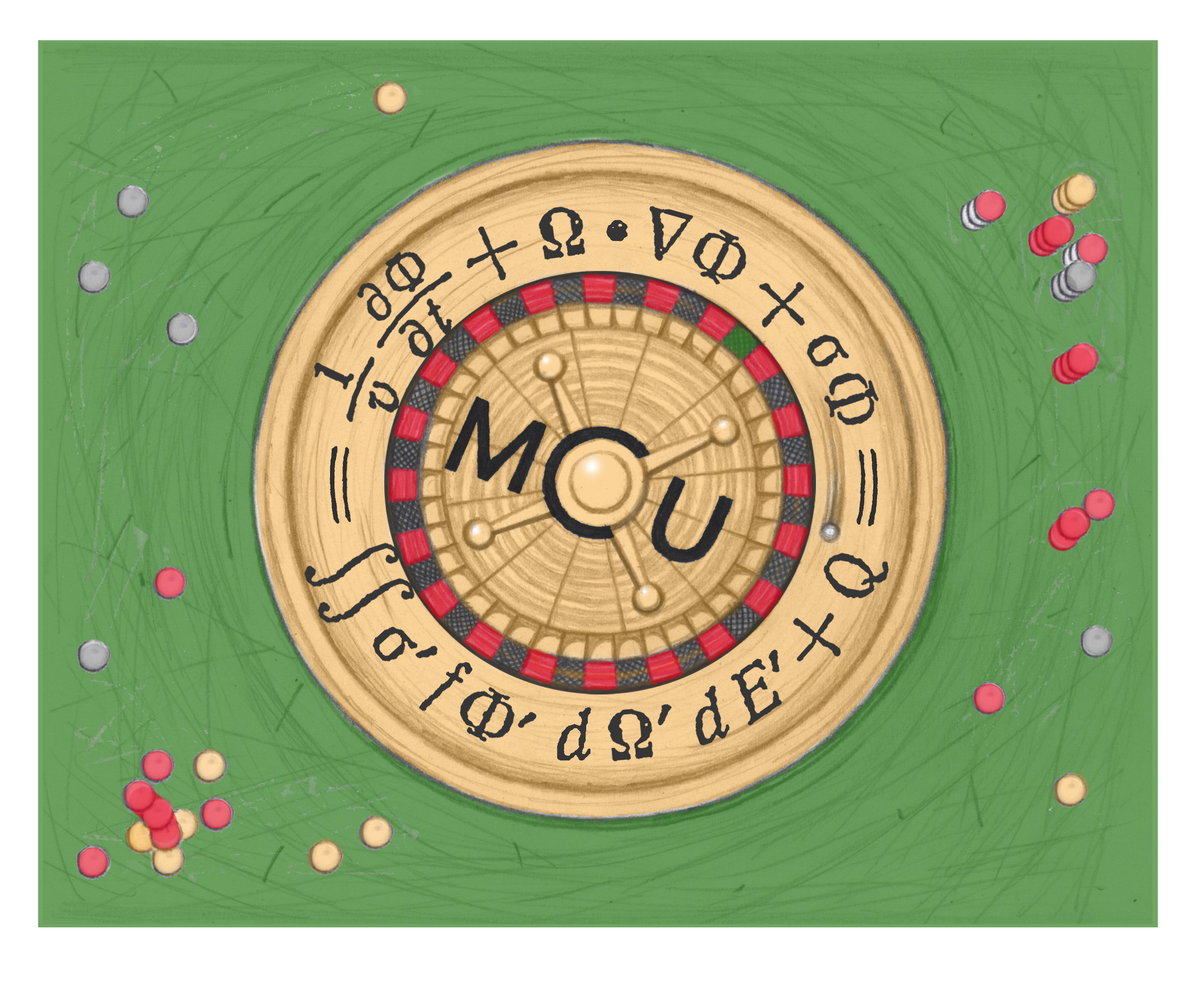About
 MCU (Monte-Carlo Universal)
is a project on development and practical use of a universal computer code for simulation of particle transport (neutrons, photons, electrons, positrons) in three-dimensional systems by means of the Monte Carlo method.
MCU (Monte-Carlo Universal)
is a project on development and practical use of a universal computer code for simulation of particle transport (neutrons, photons, electrons, positrons) in three-dimensional systems by means of the Monte Carlo method.
The main advantage of the Monte Carlo method is its ability to simulate the interaction of radiation with substance on the basis of the information from files of the evaluated nuclear data (i.e. the most exact data without additional assumptions is used). Besides, this method practically does not impose restrictions on the geometry of considered systems.
It is well known, that in many cases the Monte Carlo method used with evaluated nuclear data, may replace experiment. At present days such codes are used at the analysis of radiation and nuclear safety of existing and at designing new objects of atomic energy and for other purposes.
Work on the MCU project began at Kurchatov Institute in 1982 at the initiative of L.V. Maiorov on the basis of works performed by A.D. Frank-Kamenetsky, and with the support of Ya.V. Shevelev.
Activities on the project include:
Development of algorithms of the Monte Carlo method;
Development of modules and applied codes for the decision of the homogeneous and non-uniform equations of radiation transport by the Monte Carlo method;
Development of constant libraries for these codes, development of codes for data processing;
Verification of the developed codes and libraries of constants;
Licensing in the regulatory body on realization of neutron-physical calculations of nuclear reactors;
Support of codes on computers of users, provision of necessary consultations.
Various applied codes of MCU family have specific features and areas of use. In aggregate they allow to solve the following problems:
evaluation of criticality and nuclear safety of nuclear objects;
simulation of campaigns of nuclear reactors of various type;
simulation of radiation protection , evaluation of radiation safety;
reactor dosimetry;
evaluation of electric signal of self powered detectors of the reactor internal monitoring system;
evaluation of radiating characteristics of irradiated nuclear fuel;
experiment quality evaluation;
verification and validation of databases and engineering codes;
evaluation of various effects, such as: gap effects, influence of environment on the cell constants, diffusion coefficient dependence on the moderator density, double heterogeneity, etc.;
anti-neutrino detector design;
design of the pulsed neutron source driven with the proton beam;
transmutation of actinides and fission products;
design of facilities for neutron doping of silicon.